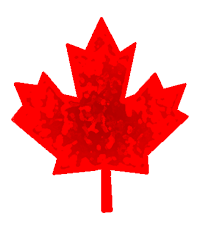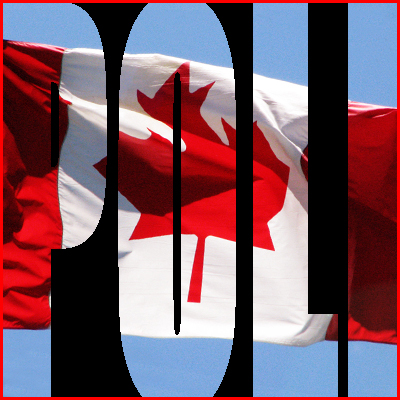
Canadians are often admonished by the media for “voter apathy.”
In every election, the media complains about the high percentage of Canadians who don’t vote.
So why don’t Canadians vote?
Independent Canadian Journalist/Blogger Jason Koblovsky pointed to this excellent Parliament of Canada article:
Youth Voter Turnout in Canada – 2. Reasons for the Decline and Efforts to Increase Participation which provides both background and basic understanding of the “voter apathy” problem.
Voter apathy is not confined to the young.
This problem has spread through all of Canada. One powerful reason many Canadians, both young and old, feel disenfranchised by the system, is that:
“…many voters doubt that voting every four years
can truly influence the decision-making process …”— Youth Voter Turnout in Canada
2. Reasons for the Decline and Efforts to Increase Participation
Why don’t Canadians think we can make a difference?
It begins with our First-Past-the-Post electoral system. We have electoral ridings where a mere 29% of the vote garners a plurality win. So although 29% has never been a passing grade at school, it is apparently enough to promote candidates into lawmakers. Inequities in the system leave too far many citizens without any voice at all in government. To learn more about electoral reform, visit the Fairvote Canada site and give their Fairvote Calculator a spin.
Because left to themselves, neither Liberal or Conservative parties are likely to enact electoral reform.
Why would they wish to alter the system that has, until now, allowed them to take turns ruling Canada?
Representative democracy?
Our Members of Parliament are supposed to represent us – and look out for our best interests – in Parliament.
Currently, there are enough citizens in each riding that if the elected Member of Parliament did nothing but meet constituents 40 hours a week for 50 weeks a year, they would only be able to give each a few minutes of their time.
But they don’t. Our elected Members of Parliament are in Ottawa for some of the year, making the laws that govern our lives. And most people never seek out their MP unless they have a problem. Which is a good thing, because there really is not enough time in a year for an MP to talk to every voter.
That’s why it is so important for constituents to have an opportunity to see the candidates who seek to represent them.
41st Election Campaign
Now that we are in the midst of an election, candidates are canvassing door-to-door. It’s one of those folksy things designed to make politicians appear more accessible.
I know they’re canvassing because many of them are “tweeting” about canvassing on Twitter. In fact, former Conservative Minster of Industry, Tony Clement, recently tweeted that he was engaged in friendly rivalry with the NDP candidate who was canvassing the very same street.

Which got me thinking. I mean, seriously, if there isn’t enough time to speak to everyone they represent in the course of a year, how can they possibly manage it during the few weeks of an election? If most Canadians never get a candidate at their door during a campaign, why would a Conservative and NDP candidate end up canvassing the same street at the same time in the same election?
Clearly, candidates have to decide where to canvass. Are they are targeting the same areas? And where are politicians going door to door? In nice neighborhoods, of course.
In my entire life, I’ve actually only had candidates at my door twice, once for a municipal election and once federal.
Can it be that they only canvass the “better” neighborhoods? A friend of mine was surprised to learn there is any door-to-door canvassing at all. He lives in the densely populated urban setting of my riding, in what is a residential mix ranging from single family dwellings to townhouses, low rises and high rises, with some subsidized housing on the side. You couldn’t ask for a better cross section of society. Talk about the electorate in microcosm.
But he assumed that they didn’t do that anymore since he has never had a politician at his door.
Can it really be that door-to-door canvassing only happens in rich neighborhoods? If that is true, is it any wonder that citizens who do not live in expensive neighborhoods feel disenfranchised?

How the 41st Election is being run: close to home
More than 115,00 citizens reside in the geographically huge Kitchener-Conestoga riding which combines three far flung rural townships with the densely populated southwestern part of the city of Kitchener. What that means is this riding includes many of the very poorest citizens of Waterloo Region, including the unemployed, immigrants, students and the disabled, alongside young families starting out as inexpensively as possible. At the same time the riding includes some of the region’s very richest citizens who reside in multi-million dollar homes situated in the surrounding townships.
This calendar provides information about 41st election events in Waterloo region. The first Kitchener-Conestoga all-candidates meeting took place in the tiny town of St. Agatha, a geographic location not served by public transit. And of course, this event happened at the start of the campaign so the newly minted Green Party candidate, Albert Ashley, wasn’t able to attend. In other words it wasn’t really an “all candidates” meeting.
A second all-candidates meeting was scheduled for in Elmira, another venue not served by public transit.
Well, if you wanted to arrive well before the meeting began, you could have attended, but Grand River Transit daily service concluded before the meeting actually began at 7pm, so you wouldn’t have been able to get home.
So. The ONLY “all candidates” meetings in this riding were held in out of the way venues inaccessible to public transit.
Only citizens with cars are included in the electoral process. #FAIL

Misconceptions
If Canadians were to vote for the candidates we want to elect instead of the candidates that strategic voting advocates convince us we have to vote for (and who are, in fact, the candidates the advocates support) we would see real change.
Canadians have long been told that majority government is a good thing. Yet, in practice majority government has the power to ignore citizens, so in reality majority government is only good for the winner (and their friends).
We are told elections are expensive, yet even if we held elections annually it would be far cheaper than the patronage that always happens with a majority government.

We are told that votes for the Green Party of Canada or the New Democratic Party are wasted, ineffectual because they can’t form a national government. Yet these two parties are fielding candidates across the entire country. This means Canada has four parties able to send enough candidates to Ottawa to form a majority government for #elxn41.
We are told that votes for small new parties or independent candidates are also wasted votes. Any party incapable of forming a national government is supposed to be a waste. Tell that to the Bloc Québécois. Ostensibly formed to lead Quebec separation from Canada, the BQ party has championed the rights of Quebec’s citizens at the federal level.
When we elect any candidates they are capable of giving citizens a voice in Ottawa (and even more so should there be a coalition government.) The Universal Health Care that Canadians value so much would never have come about but for just such a “fringe” party.
It is implied that only the Liberal Party of Canada and the Conservative Party of Canada are capable of governing because of their experience, taking turns. They have taken turns governing this country all along. Yet if we look closely, we can see that they are not the same. John Diefenbaker’s Conservative Party (the party that pulled the plug on the AVRO Arrow, and incidentally Canada’s aerospace industry) was very different from Brian Mulroney’s Progressive Conservative Party (the party that gave us the GST, with the bulk of tax funds collected going into bureaucracy needed to administer it) and is in turn very different from Stephen Harper’s Conservative Party (itself a coalition made up from the merger of the Reform Party with the remnants of the PC Party).
Supporting the alternating Liberal and Conservative parties has put Canada in the position we occupy today. We’ve gone from a nation of early adopters of digital innovation to a nation barely treading water in a digital world. Past Liberal and Conservative governments are equally culpable in allowing the erosion of Canada’s digital economy through favoring corporate special interests at the expense of Canadians. Governments the world over have shown a woeful inability to understand crucial digital issues, and ours is no different. That’s why the Pirate Party of Canada came into existence – to fight to safeguard Canada’s digital future.
Polls are treated as though their results are factual, and they tell us who will be elected before a single vote is cast. If polls were 100% accurate why do we need to hold an election? A small sampling, polls are far from a foregone conclusion. At worst, a poll can be slanted to misrepresent the situation, but even at best a poll is akin to an educated guess. A poll is not fact, but a survey.
All of these misconceptions are promoted vigorously by the mainstream media. It is very important to realize that mainstream media is anything but unbiased. The mainstream media has its own agenda, which does not reflect the best interests of citizens, but rather the needs of the corporations. (TV tax, Fox News North, Canadian DMCA, UBB… )
The mainstream media berating Canadians for low voter turnout has contributed directly to it through its propagation of misinformation.
DeMOCKracy
While we worry about two tier health care we suffer from two tier democracy. Certainly the two problems are connected.
And a great many Canadians do not usually vote.
Instead of reaching out to voters who don’t ordinarily vote, it appears that today’s political parties only bother with the usual suspects.
Instead of reaching out to the disenfranchised, they attempt to change minds that are already made up for the most part.
As far as the Conservative and Liberal parties are concerned, they have only each other to beat. That’s why they like our seriously broken political system, and will certainly never enact electoral reform. After all, as Charlie Sheen says, they are #winning.
But are they really? I don’t think so.
Canadians are increasingly disgruntled.
We are generally becoming more politically aware than we have been for a long time because of the failures of our government. Participation in Politics looks at the way technology is giving citizens the means to have our voices heard. Canadian politics are in such disarray that the disenfranchised aren’t waiting anymore to be invited to participate in democracy.
The amount of anger on display in the streets at last year’s at last year’s no-prorogation rallies was palpable. And a great many of these citizens had never even marked an x on a ballot. But social media and the Internet have given us ways to communicate and mobilize as never before.
The fact that the “all candidates” meetings are drawing bigger crowds than expected is telling.
In an effort to attract students to voting, Elections Canada have been allowing campus polling stations to make it easier for students to vote. The Conservative Party attempted to have the votes cast at the University of Guelph polling station discounted but failed.
And we have a growing Vote Mobs multi-partisan movement started by actual Canadian young people under the name Leadnow. Our youth are certainly taking an interest.
Anything is possible.
Because an election wipes the slate clean. If Canadians wanted to, we could elect an NDP or Green Party majority, making Jack Layton or Elizabeth May Prime Minster without even needing a coalition.
The results of the last election is old news… history. What happened in the last election has no bearing on this one, unless we choose to learn from it.

No one has been elected for the 41st Parliament.
Every job position sits vacant, and it’s up to Canadians to decide who will fill them.
Canadian voices *can* be heard. Go Canada!
Image Credits:
Original photographs by laurelrusswurm released under a Creative Commons Attribution 3.0 Unported (CC BY 3.0) License



There’s a couple of points I’d like to add to Laurel’s excellent post:
1) Voting yesterday at the first day of advance polling was extremely brisk – far brisker than anticipated by Elections Canada. This points to a possible record turn out.
2) Polling by the ‘Polling Professionals’ does not include cell phones. Most of the younger generation (anyone under 35) doesn’t have a land line. This means that the polls are probably way off.
3) I’m hearing a lot of excitement this time around. Usually you’ll hear things like ‘Oh no, not again.’ This time it’s mote like, ‘OK, who is offering what.’ This should have the politicians concerned. Voters who are asking questions aren’t likely to care about attack ads. In fact voters who are asking questions are likely to vote against attack ads.
4) I personally saw a lot of people at the polling station in Richmond Hill. A lot of people. I also spoke to the people working there, who indicated they they had been constantly busy all day. And that was on Easter Friday, a day you would expect to be relatively quiet.
5) The polls are open till 8:00 PM today, and open on Monday from 12:00 Noon until 8:00 PM if you want to vote early.
6) On May 2, 2011, we intend to get in beverages and snacks, and have our traditional election party in front of the TV set. We suggest that all families do the same. It’s a great way to introduce your kids to politics. Make it exciting. Two of our kids voted for the first time in a Federal election yesterday. They were really excited to cast their votes.
Wayne
[…] I need to mention that I included the link to my Voter Apathy article with the question, as I felt it provided background on the disenfranchisement of voters. […]